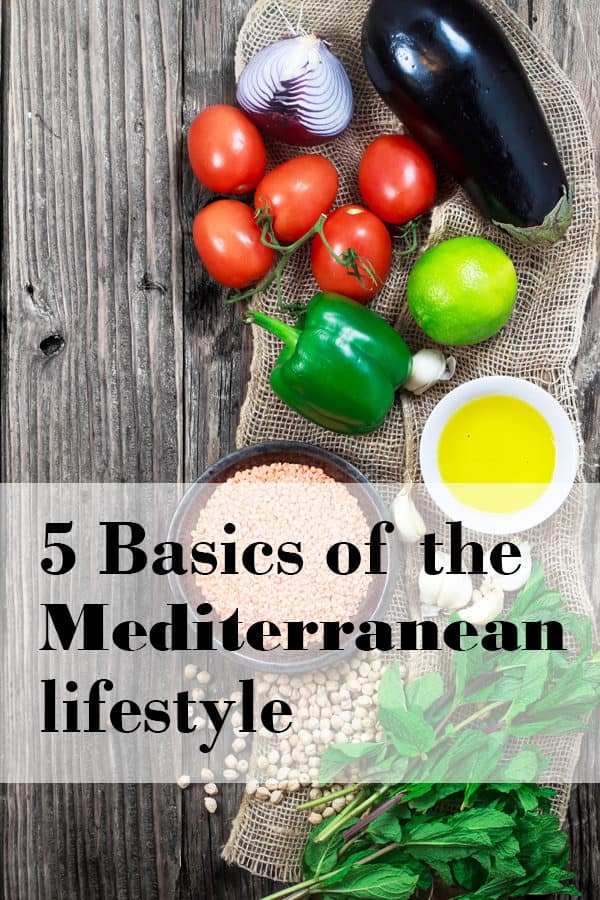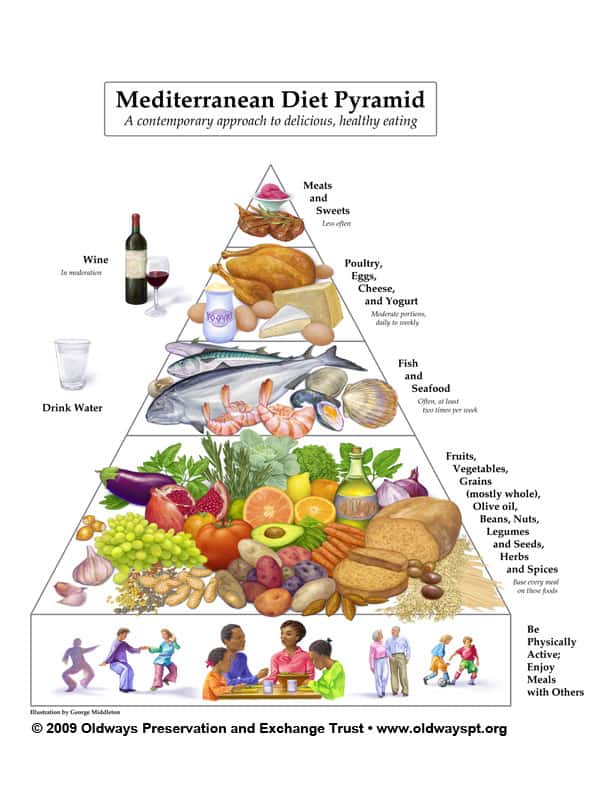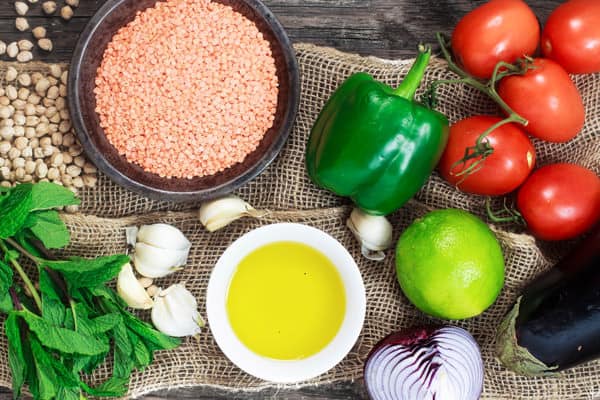Back in August, a reporter for Neurology Today reached out. Dawn’s request, “we’re doing a story about the Mediterranean diet and health. I was wondering if I could interview you about your blog and some of the tricks in switching to a more Mediterranean lifestyle?”
Yes, a good portion of our conversation focused on the Mediterranean diet–the food, cooking style and eating habits of the countries surrounding the Mediterranean. And we agreed that while the Mediterranean diet is one of the top 8 most popular diets, it is not a “diet” where the end goal is to simply loose weight. It is more of a lifestyle–a daily practice; a sustainable way of living. And so that’s where the conversation went. And I will take it a step further here by sharing with you 5 basics of the Mediterranean lifestyle. Before we go any further, one thing to keep in mind: this is not an expert opinion nor a comprehensive analysis of the Mediterranean lifestyle. This is me, a Mediterranean girl, sharing my own perspective on a lifestyle I practice. And I am choosing to share only 5 things to help you understand, and perhaps begin to follow the Mediterranean lifestyle. For lack of a more creative title, let’s go with “5 basics of the Mediterranean lifestyle.”
5 Basics of the Mediterranean Lifestyle
Follow the Mediterranean Diet Growing up, fresh vegetables, a handful of raw nuts, or even a bowl of lentil soup were my regular after-school snacks. Two times per week, my family ate fish or seafood for dinner, often with a side of rice or grains and a fresh chopped salad. We ate other forms of lean protein like poultry, moderately. Red meats on occasion. I would be lying if I said chocolate, cakes and pastries never made an appearance, I mean hello baklava! But a piece of fresh fruit or dried fruit was a more regular dessert choice. With all the variety on the Mediterranean food pyramid, it’s really hard to think that my family is following a “diet,” right? There are no food restrictions in the Mediterranean diet. Everything is pretty much allowed. But if you look closely at the Mediterranean food pyramid, you’ll quickly notice that it focuses on grains and vegetables; dairy; fiber and lean proteins from nuts and seafood, and far less on fatty meats. Olive oil is also a main source of fat (almost every recipe here on the blog has olive oil as an ingredient). And yes, thank goodness, we can have a little wine! We can certainly dedicate another whole post to the Mediterranean diet alone, but the key is in balancing your meals according to the Mediterranean food pyramid. Eat more of what’s at the wide base of the pyramid; less and less of the items toward the top of the pyramid. Of course, pay attention to portion sizes; there is no “supersize meals” in the Mediterranean lifestyle. Be with family. Share with loved ones When it comes to eating and portion size, one helpful Mediterranean habit is to eat as few meals as possible alone. I grew up eating all my meals at a table full of family and friends, and I try to do the same today. I don’t know about you, but when I share a meal with others, I tend to eat slowly, and I am less likely to stuff myself. But beyond sharing a meal, the Mediterranean culture cultivates a balanced social life and a certain connectedness to the people who matter. Five years ago, when we lived in Iowa, I decided to limit my social life. Sounds contradictory, right? I went back to something I learned growing up on the shores of the Mediterranean. Something you may recognize as ancient Biblical wisdom, “a man with too many friends comes to his own ruin.” I surrounded myself with my family and only a few loyal friends. I surrounded myself with people who care deeply about me; people that will tell me the truth and help me grow. My social calendar, freed. My social life, far richer.
Move Naturally Here is a big confession from a true Mediterranean gal: Mediterranean folks do not exercise. I realize that I’m making a big generalization, and I know it seems like a bit of a paradoxical thing to add here. But seriously, Mediterranean people do not specifically carve out two hours a day for heavy lifting at the gym. But, that doesn’t make them inactive. Nothing is too convenient when you live in that part of the world, so moving is a natural practice for people of the Mediterranean. They do a lot of manual labor; they climb lots of stairs; and they walk…a lot. They walk, at least part of distance, to their workplace daily. They walk to the farmer’s market, the bakery, or the dairy shop for a fresh Greek yogurt. They walk to their friends’ homes; and when they want to do something leisurely, they go out for a walk. My dad sold his car a few years ago; he didn’t need one in the first place. Now, if you are one of the small percentage of people who keep an active gym membership, please don’t quit. But as we know, 80% of the people who newly joined your gym this January will drop off by mid February. Inviting natural movement, a moderate exercise like a daily walk, is an effective and sustainable healthy habit. I do yoga and CrossFit classes, but never everyday. I can more easily fit in a 30-minute walk. Laugh Often Are you familiar with the saying, “laughter is the best medicine?” That has certainly proven true in the case of the Mediterranean people. I can’t say that this is a characteristic of all people of Mediterranean heritage, but it is certainly evident in the many I know. They are people of big personality. They love to tell stories; their conversations filled with humor. There is certainly a sense of priority– yes, take life seriously, but to do so with a joyful attitude. Live (More) Simply Perhaps this is not completely by choice, but people of the Mediterranean, or at least the many I encountered across the places I’ve been–Egypt, Greece, Turkey and even France–tend to have far fewer possessions than I do living here in the States. And I’ve also observed that they make stewardship decisions when it comes to daily needs. Take food for example; Mediterranean folks don’t buy too much of any one ingredient. The whole concept of buying in bulk remains foreign to them. Eating freshly matters, and they don’t mind making multiple trips to the market–on foot, mostly. Recipes like fattoush where day old bread is used, or paella where leftovers are turned into a stunning flavor-packed rice dish, are two examples of delicious ways to minimizing waste.
One final word, I am certain many cultures across the world share some of these lifestyle practices. And I would love to hear about positive lifestyle practices that you’ve found helpful to you. Related articles: How to stock your pantry for a Mediterranean Lifestyle.



